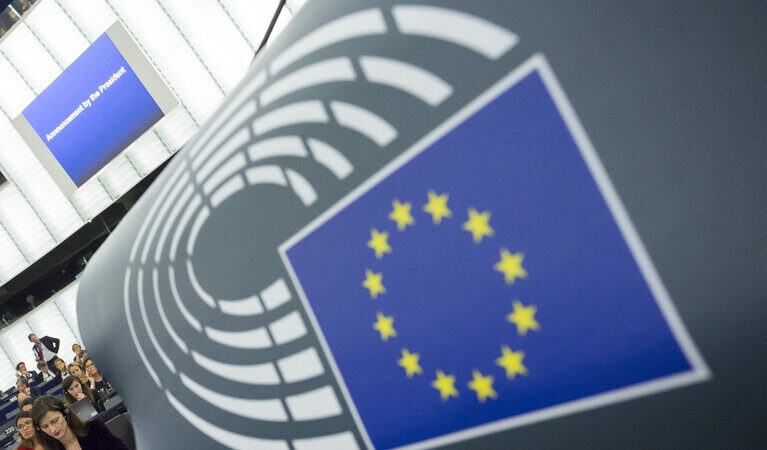The Committee of Civil Liberties in the European Parliament has overwhelmingly adopted the European Commission’s draft for a far-reaching anti-corruption directive on Wednesday to step up efforts across all member states, including a proposed total ban on citizenship and residency by investment schemes like Malta’s.
The draft text, designed to strengthen existing frameworks, was adopted with 63 votes for, two against and two abstentions, signalling the strength of support the directive enjoys among legislators and member states.
“Corruption is one of the greatest threats to our communities and national and European Union institutions. It erodes democracy, undermines trust in public institutions, and deprives our citizens of the opportunities and services they deserve,” said Rapporteur Romana Strugariu.
“Finally, we will have harmonised rules in place, enabling us to fight corruption efficiently,” she added.
Cash for passports first in line
The version agreed upon in parliament saw MEPs call for a total ban on citizenship and residence by investment schemes.
Malta is the only European Union member state that still offers up nationality and a passport in exchange for ‘investment’, fees, and meeting certain criteria.
Cyprus and Bulgaria both shelved their schemes in recent years following significant corruption scandals and increasing pressure from the European Commission and other members.
The scheme was launched shortly after the Labour Party came to power in 2013, and was administered with the help of Henley & Partners as a concessionaire. The company was later found to have spent a significant amount of money to lobby the EU over its stance on selling passports.
Malta has also seen a steady stream of scandals linked to its scheme, including applicants and ‘new citizens’ being involved in money laundering, fraud, embezzlement and other crimes, and serious irregularities in the application and approval process, but has refused to give it up.
This resulted in infringement proceedings from the Commission and a referral to the European Court of Justice over what Brussels says is a violation of EU law.
The Commission argues that granting EU citizenship, which a Maltese passport would bestow, in return for pre-determined payments or investments without any genuine link to the member state, is incompatible with EU treaties and the concept of EU citizenship.
The EU sent two formal warnings to Malta over the scheme, followed by a reasoned opinion– both of which were essentially ignored and left unaddressed. Therefore, in September 2022, the Commission sent the case to the EU court.
If the new directive makes it through negotiations and is ratified with the current wording in tact, Malta will be forced to shelve its controversial scheme.
Tougher on officials
The draft also foresees an increase in the scope of who is considered a person of interest. The text now states that it includes “any person entrusted with tasks of public interest or in charge of a public service.”
This reflects a desire from MEPs that even senior EU decision-makers, including MEPs, commissioners, and the President of the European Council, be included as “high-level officials” and subject to tougher rules.
It also now includes military officials at a national level, senior executives of state-owned entities, and managing officials of political parties represented in parliament.
MEPs also asked for harsher penalties, particularly relating to the offender’s right to hold public office and excluding them from access to public funding. This would also include the suspension or reassignment of officials and the appropriate exercise of discretionary powers regarding prosecutions.
They also want to see pardoning or amnesties to those guilty of corruption-related crimes prohibited combined. In addition, they want to limit diplomatic and official immunities and increase damages payable and the rights and compensation available to victims.
Tougher measures, broader scope
They added specific anti-corruption measures to handle conflicts of interest, such as the ad-hoc disclosure of new disputes and sanctions for failing to report substantial assets.
In addition, there would be minimum requirements for disclosing information relating to lobbying and the mandatory registration of interest representatives.
Revolving doors, such as restricting post-term employment for public officials, would also be regulated under the current draft.
Lawmakers also want to criminalise offences such as concealment, misconduct in public office and illicit political financing. Additional provisions for public procurement and political funding have been made to enable public scrutiny by allowing citizens better access to information.
In the next stage of the process, member states will have to develop anti-corruption strategies, while EU institutions and agencies will have to take appropriate preventative measures. This includes setting up independent bodies in line with EU law and standards.
MEPs also demand that the Commission establish a dedicated EU anti-corruption coordinator and produce a yearly EU Anti-Corruption report.
As a next step, the negotiating mandate will be approved in the parliament plenary session at the end of February, after which negotiations with member states on the final draft will commence.















Oh dear- no more (phantom) jobs for the boys?
An EU Anti-Corruption delegate would have a job for life if they were sent here.
we should understand who is corrupt in the European Commission, since in Malta not only the sale of passports happens… but almost all the laws are completely opposite to Europe, just think of the judiciary, safety at work or even car registrations, customs checks. ..
Three quarters of Lejber’s Ministers, appointed public servants, cronies, etc, will be automatically eliminated from their jobs and positions with this. Newest case that comes to mind is a particularly incompetent director at the Tax department, currently under police investigation and who not only got his first directorship because he had friends in high places, but is now being deliberately hidden in a new position, as director LTO. The fact that he’s being criminally investigated means he should be suspended on half or no pay, but this is Lejber corruption. No surprise there.